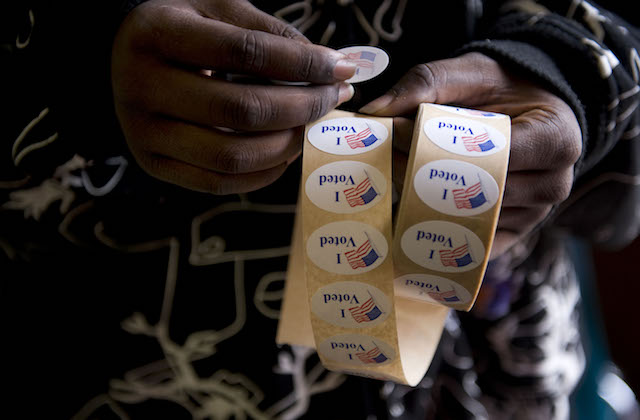Trial Begins for North Carolina's Allegedly Discriminatory Voter ID Law

In 2013, North Carolina leaders passed what has been called one of the nation’s strictest voter ID laws. It narrowed the kind of IDs that were acceptable, dropping student and public employee IDs from the mix.
Today, the United States District Court for the Middle District of North Carolina began hearing arguments that the law places an unconstitutional burden on voters in violation of the 14th Amendment, goes against the 26th Amendment, violates the Voting Rights Act and was passed with the intention of disenfranchising voters of color who are less likely to possess the required identification. In an attempt to soften the court ahead of the trial, the state made some last-minute changes to the law—adding a provision for people who are unable to obtain the ID due to a narrow set of “reasonable impediments." Those changes will not be considered in the trial. The Washington Post reports that the 2013 bill that included the new ID requirements also prohibits people from registering and voting on the same day, reduced the time frame for early voting, voided ballots cast in the wrong precinct and put an end to a policy of registering teenagers ahead of their 18th birthdays.
The law was passed in the wake of the Supreme Court's neutering of Section 5 of the Voting Rights Act of 1965 and research that found that voters of color have increasing influence in elections in North Carolina. Republican legislators have argued that the law is necessary to battle voter fraud. But the plaintiffs—lead by the U.S. Department of Justice, the North Carolina Conference of the NAACP and the League of Women Voters of North Carolina—say that there is no fraud to counteract.
“We have expert witnesses who will testify that the state’s rationale for the law is unsupported, that there is absolutely no evidence of in-person voter impersonation that would justify this law,” attorney Denise Lieberman, who represents the NAACP in the case, told ThinkProgress. “Furthermore, these laws don’t advance or expand people’s confidence in the voting process, as the state is arguing. They actually reduce it. So the conclusion we must draw is that lawmakers knew what they were doing.”
As of now, the modified ID provision will be the law of the land for the state's primary election in March.
(H/t ThinkProgress)
